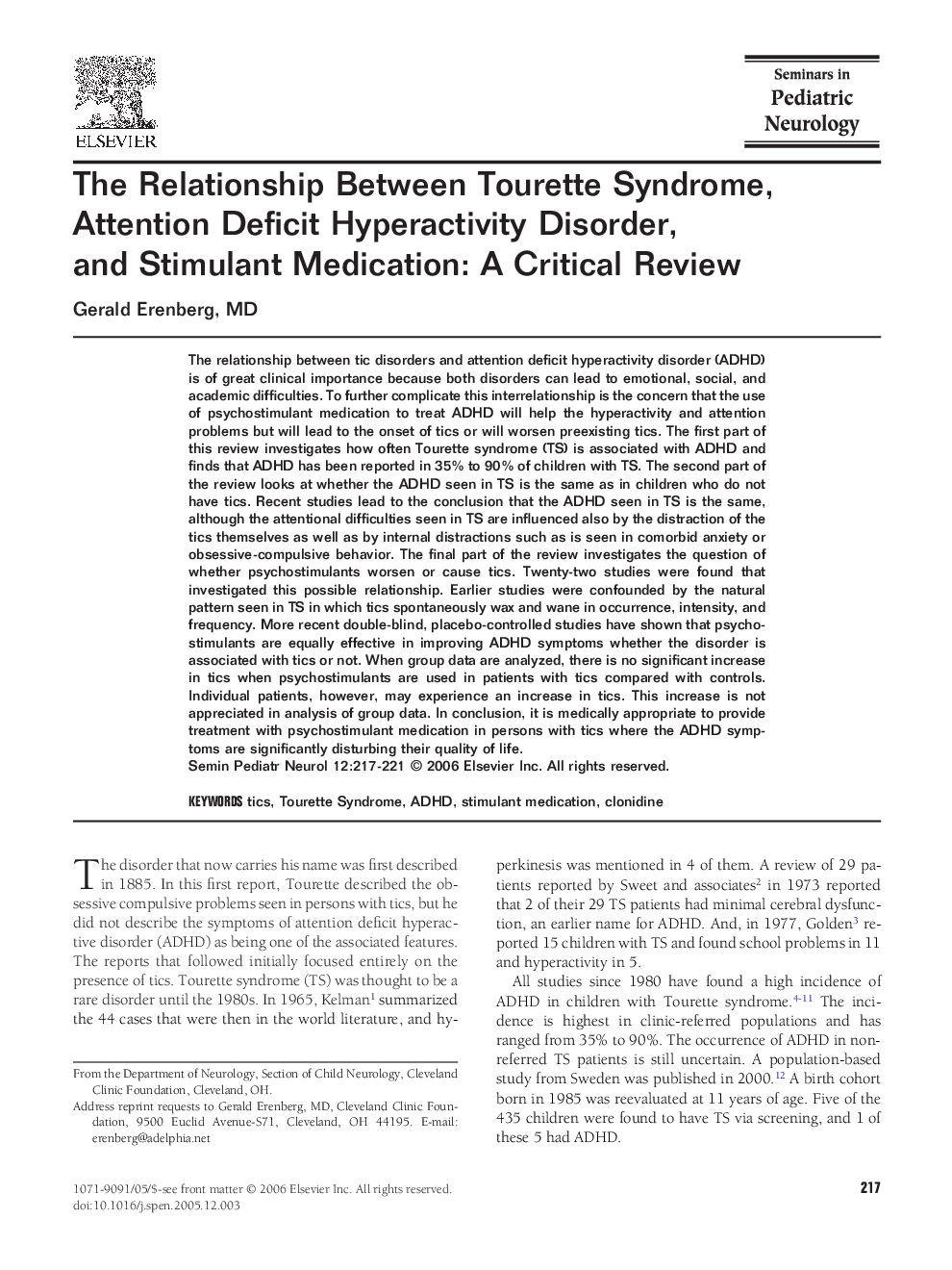| کد مقاله | کد نشریه | سال انتشار | مقاله انگلیسی | نسخه تمام متن |
|---|---|---|---|---|
| 9203306 | 1190332 | 2005 | 5 صفحه PDF | دانلود رایگان |
عنوان انگلیسی مقاله ISI
The Relationship Between Tourette Syndrome, Attention Deficit Hyperactivity Disorder, and Stimulant Medication: A Critical Review
دانلود مقاله + سفارش ترجمه
دانلود مقاله ISI انگلیسی
رایگان برای ایرانیان
کلمات کلیدی
موضوعات مرتبط
علوم زیستی و بیوفناوری
علم عصب شناسی
علوم اعصاب تکاملی
پیش نمایش صفحه اول مقاله

چکیده انگلیسی
The relationship between tic disorders and attention deficit hyperactivity disorder (ADHD) is of great clinical importance because both disorders can lead to emotional, social, and academic difficulties. To further complicate this interrelationship is the concern that the use of psychostimulant medication to treat ADHD will help the hyperactivity and attention problems but will lead to the onset of tics or will worsen preexisting tics. The first part of this review investigates how often Tourette syndrome (TS) is associated with ADHD and finds that ADHD has been reported in 35% to 90% of children with TS. The second part of the review looks at whether the ADHD seen in TS is the same as in children who do not have tics. Recent studies lead to the conclusion that the ADHD seen in TS is the same, although the attentional difficulties seen in TS are influenced also by the distraction of the tics themselves as well as by internal distractions such as is seen in comorbid anxiety or obsessive-compulsive behavior. The final part of the review investigates the question of whether psychostimulants worsen or cause tics. Twenty-two studies were found that investigated this possible relationship. Earlier studies were confounded by the natural pattern seen in TS in which tics spontaneously wax and wane in occurrence, intensity, and frequency. More recent double-blind, placebo-controlled studies have shown that psychostimulants are equally effective in improving ADHD symptoms whether the disorder is associated with tics or not. When group data are analyzed, there is no significant increase in tics when psychostimulants are used in patients with tics compared with controls. Individual patients, however, may experience an increase in tics. This increase is not appreciated in analysis of group data. In conclusion, it is medically appropriate to provide treatment with psychostimulant medication in persons with tics where the ADHD symptoms are significantly disturbing their quality of life.
ناشر
Database: Elsevier - ScienceDirect (ساینس دایرکت)
Journal: Seminars in Pediatric Neurology - Volume 12, Issue 4, December 2005, Pages 217-221
Journal: Seminars in Pediatric Neurology - Volume 12, Issue 4, December 2005, Pages 217-221
نویسندگان
Gerald MD,